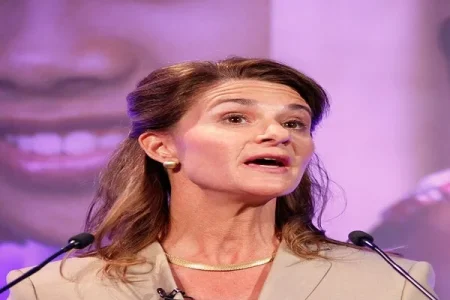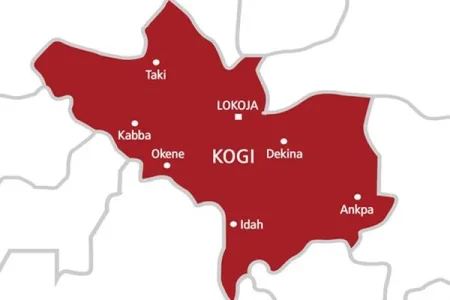
Melinda French Gates is stepping down from the Bill & Melinda Gates Foundation she built with her ex-husband, nearly two years after their high-profile divorce.
In a significant shakeup for one of the world's most influential philanthropies, Melinda French Gates announced Wednesday she is resigning from the Bill & Melinda Gates Foundation, the $70 billion charitable organization she helped create and lead for over two decades before divorcing Microsoft co-founder Bill Gates in 2021.
The departure of Melinda Gates, 58, as co-chair and trustee marks the end of an era for the foundation, which aims to use its massive endowment to tackle global poverty, disease and gender inequality. Her exit also raises major questions about its future direction in the post-divorce era.
"This is not a decision I came to lightly," Melinda Gates said in a statement posted online. "I am immensely proud of the foundation that Bill and I built together and of the extraordinary work it is doing to address inequities around the world."
Melinda cited her increasing commitment to her own Pivotal Ventures investment firm, focused on advancing women's power and influence, as the reason for leaving the foundation. But her resignation follows reporting that she had pushed internally for governance changes and greater independence from the foundation's corporate culture and Bill Gates's influence after their split.
When they announced their divorce in 2021 after 27 years of marriage, Bill and Melinda had pledged to continue their philanthropic work together as co-chairs of the foundation they launched in 2000. However, sources said Melinda, who shared the foundation's strategic vision and major initiatives as an equal partner, was never fully comfortable returning to a subordinate role once the relationship fracture became public.
The foundation has set hugely ambitious goals like eradicating polio, achieving global food security, and improving U.S. public education through multi-billion-dollar initiatives like vaccine distribution, agriculture development programs, and funding for school reforms. It spent nearly $7 billion on its wide-ranging philanthropic efforts in 2021 alone.
Melinda played an instrumental role in shaping the foundation's priorities around gender equity and economic empowerment for women - areas she says she will continue to champion through her investment vehicles like Pivotal Ventures and Makers. Foundation CEO Mark Suzman said in a statement that her departure after 18 years of service is "a tremendous loss for the foundation."
However, the foundation has also faced persistent criticism over the years from experts who argue its top-down, data-driven approach shows a lack of on-the-ground expertise and prioritizes the perspectives of wealthy donors over local communities on complex issues like agricultural development in Africa. Its founders' immense wealth and influence powering its philanthropic vision has been a central tension.
"Having a single family's wealth and ideology guiding one of the world's most powerful development institutions is inherently problematic from an accountability standpoint," said Ashish Prashar, a global justice scholar at New York University. "Melinda's exit only exacerbates those governance concerns."
Indeed, questions loom about potential shifts in the foundation's strategy, leadership, and priorities, especially given reports of Bill Gates' strained personal behavior and workplace conduct over the years. With Melinda no longer involved, the foundation could see more unilateral control by Bill Gates and a board of trustees dominated by their inner circle.




